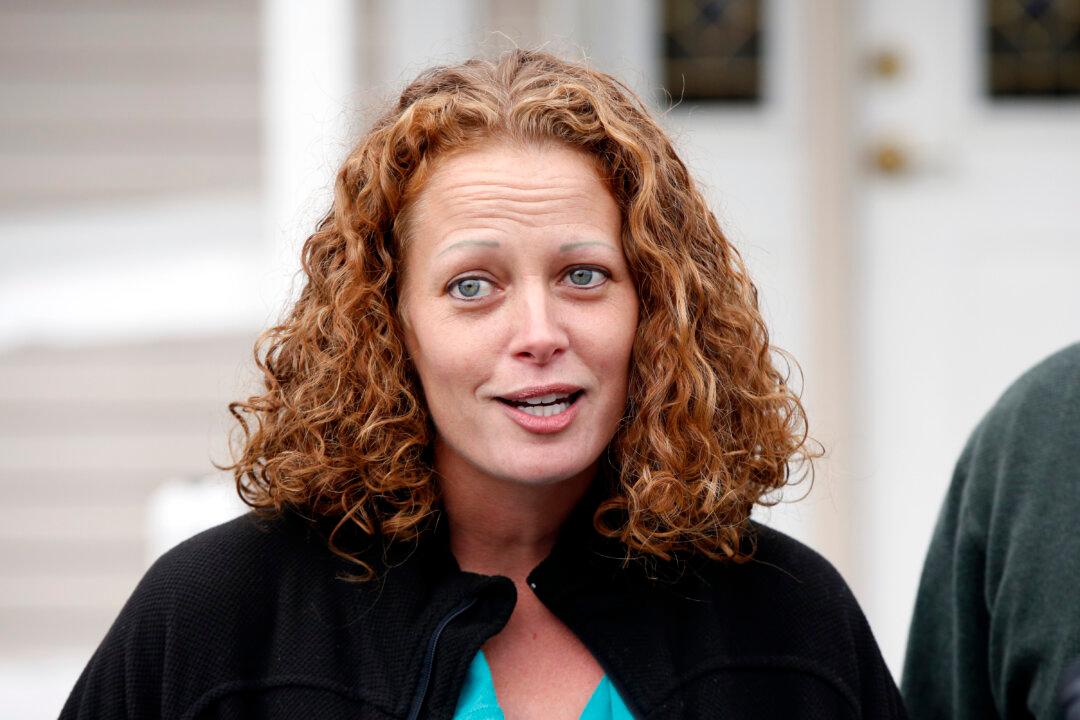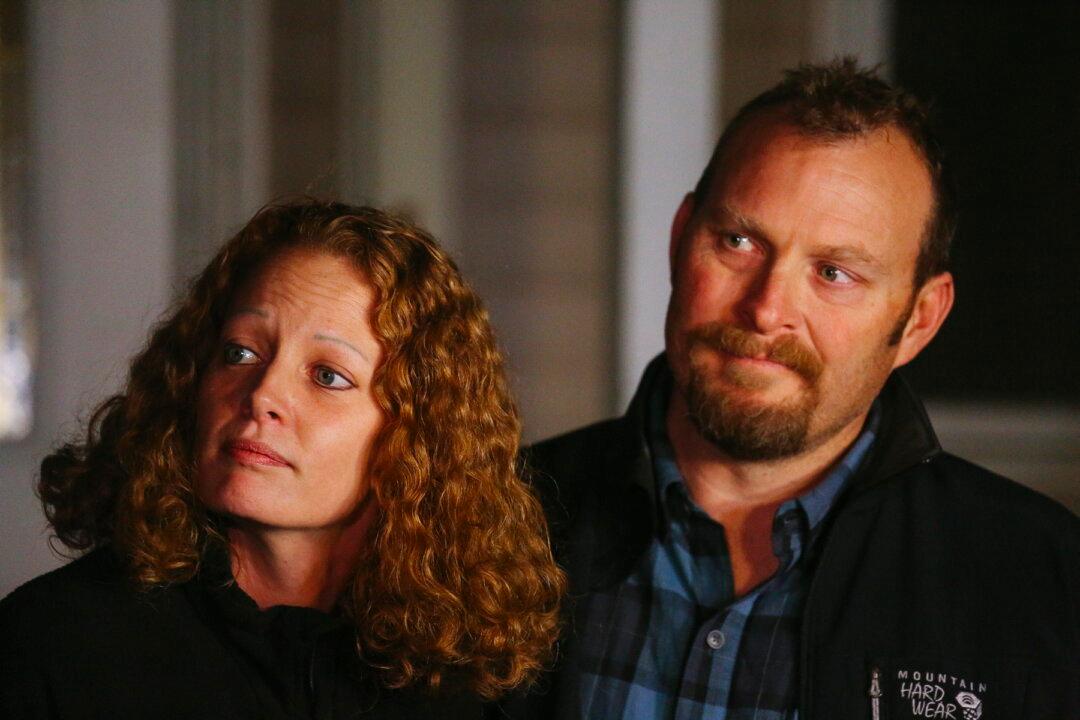[aolvideo src=“http://pshared.5min.com/Scripts/PlayerSeed.js?sid=1759&width=480&height=300&playList=518491924&responsive=false”]
FORT KENT, Maine—A nurse in who treated Ebola patients in Sierra Leone can move about as she pleases after a judge eased state-imposed restrictions on her, handing officials in Maine a defeat in the nation’s biggest court case yet over how to balance personal liberty, public safety and fear of Ebola.
Judge Charles C. LaVerdiere ruled Friday that Kaci Hickox must continue daily monitoring of her health but said there is no need to isolate her or restrict her movements because she has no symptoms and is therefore not contagious.
The judge also decried the “misconceptions, misinformation, bad science and bad information” circulating about the lethal disease in the U.S.
After the ruling, a state police cruiser that had been posted outside Hickox’s home left, and she and her boyfriend stepped outside to thank the judge.
Hickox, 33, called it “a good day” and said her “thoughts, prayers and gratitude” remain with those who are still battling Ebola in West Africa.
She said she had no immediate plans other than to watch a scary movie at home on Halloween in this town of 4,300 people on the remote northern edge of Maine, near the Canadian border.
Maine health officials had gone to court on Thursday in an attempt to bar her from crowded public places and require her to stay at least 3 feet from others until the 21-day incubation period for Ebola was up on Nov. 10. She would have been free to jog or go bike riding.
But the judge turned the state down.
Gov. Paul LePage said he disagreed with the ruling but will abide by it. Officials said there are no plans to appeal.
“As governor, I have done everything I can to protect the health and safety of Mainers. The judge has eased restrictions with this ruling, and I believe it is unfortunate,” LePage said.
Later in the day, the governor lashed out at Hickox, saying: “She has violated every promise she has made so far, so I can’t trust her. I don’t trust her. And I don’t trust that we know enough about this disease to be so callous.”
Hickox was thrust into the center of a national debate after she returned to the U.S. last week from treating Ebola victims in West Africa as a volunteer for Doctors Without Borders.
She contended that the state’s confining her to her home in what it called a voluntary quarantine violated her rights and was unsupported by science. She defied the restrictions twice, once to go on a bike ride and once to talk to the media and shake a reporter’s hand.
In his ruling, the judge thanked Hickox for her service in Africa and acknowledged the gravity of restricting someone’s constitutional rights without solid science to back it up.
“The court is fully aware of the misconceptions, misinformation, bad science and bad information being spread from shore to shore in our country with respect to Ebola,” he wrote. “The court is fully aware that people are acting out of fear and that this fear is not entirely rational.”
Hickox’s quarantine in Maine — and, before that, in New Jersey, upon her arrival back in the U.S. — led humanitarian groups, the White House and many scientists to warn that automatically quarantining medical workers could discourage volunteers from going to West Africa, where more than 13,500 people have been sickened and nearly 5,000 have died from Ebola.
Hickox has been vilified by some and hailed by others. She has been getting a similarly mixed reaction from her health care colleagues.
On a popular nursing website, allnurses.com, some nurses felt the 21-day quarantine was a sensible precaution for those returning from a high-risk area, while others were more critical, accusing her of giving nurses everywhere a bad name.
Hickox has said she is following the federal Centers for Disease Control and Prevention recommendation of daily monitoring for fever and other signs of the disease. She tested negative for Ebola last weekend, but it can take days for the virus to reach detectable levels.
Her boyfriend, Ted Wilbur, said Friday that the two of them weren’t planning to go into town in the immediate future.
“I’m just happy that Kaci is able to go outside, exercise. It’s not healthy to be inside for 21 days,” he said.
From The Associated Press. Associated Press writers David Sharp and Patrick Whittle in Portland contributed to this story.

